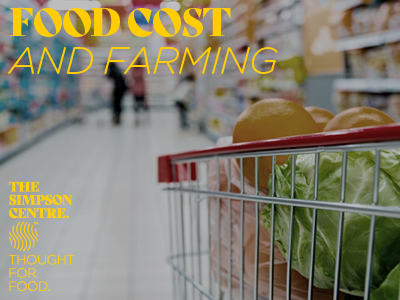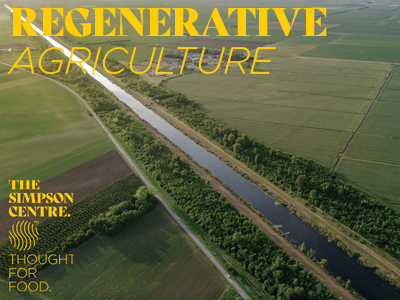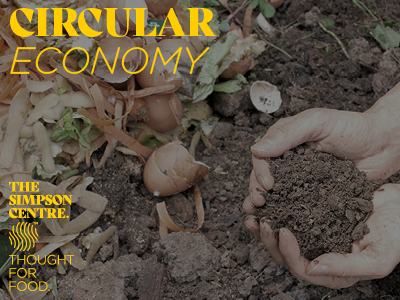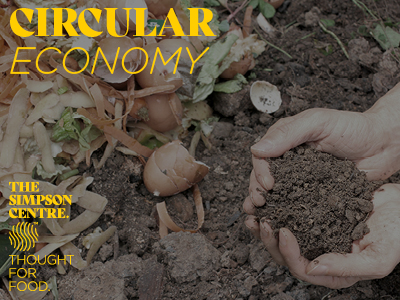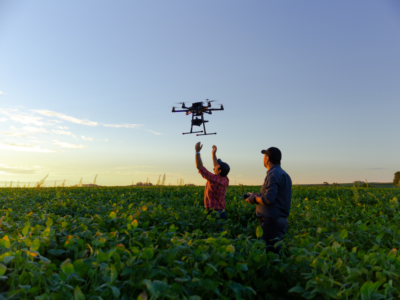Webinars
Recent Webinars
What are the fundamentals of food production costs and their impact on both farmers and consumers? Join us for an insightful webinar delving into the cost of production for the food we enjoy at our tables. Producers face unique challenges for each type of commodity they grow or raise. We’ll explore the variability in production costs for beef, pork, and bison, as well as grains and oilseeds. Discover what truly goes into running a farm operation in Canada and the factors influencing its financial sustainability.
Raw foods or foods that are minimally processed, like beef and flour, often have a higher proportion of farm-related costs compared to those involving multiple processing stages, such as beer and bread. The larger portion of total cost comes from farm-level activities. Through a straightforward scorecard analysis, we’ll compare variable costs impacting farm operations, including land prices, fuel, labour, inputs (e.g., seeds, crop protection, antibiotics), and weather conditions. We’ll also tackle important questions about farm ownership. Since 2000, farm debt in Canada has nearly doubled. This begs the question: Is the financial sustainability of Canadian farms at stake?
Don’t miss this opportunity to gain valuable insights into agricultural management, the challenges faced by today’s farmers and the realities of agriculture in our country.
Wednesday, April 17, 2024
Regenerative Agriculture (RA) has garnered significant attention as a promising solution to combat climate change, bolster biodiversity, and enhance farm economics. Yet, amidst this buzz, a clear and unified definition of Regenerative Agriculture remains elusive.
In this webinar, we delve into the myriad definitions of RA found in literature and publications. Additionally, we invite a seasoned, award-winning producer to provide firsthand insights into how Regenerative Agriculture is expressed on their farm, as well as the operational impacts resulting from ongoing discussions about this concept.
As discussions surrounding RA continue to evolve, how do these concepts resonate with farmers and sometimes translate into practical applications? Join us as we explore this question and uncover how diverse perspectives on RA translate between different actors within the sector.
Wednesday, March 13, 2024
This discussion encompasses a broader vision for agricultural waste management, spotlighting the emerging concept of biomass value webs. The implementation of this concept would require advances in data collection, the monitoring of biomass production and flows, and a commitment to circularity for waste and agricultural by-products. Additionally, we’ll delve into the current state of biotechnology and biomanufacturing in Canada, identifying opportunities for investment, resource efficiency and waste reduction, as well as the diversification of revenue streams. We’ll consider a case study of a biodigester recently approved for construction near a High River feedlot, after intense community pushback and extended legal proceedings. Ultimately, our goal is to explore the possibility of an agricultural sector that not only boosts agri-food productivity but also supplies nutrients for a bioeconomy beyond food, leveraging biotechnology and a strategic approach to advance Canada’s bioeconomy.
Thursday, February 15, 2024
What is the dynamic relationship between bioecology and agriculture? This hour-long session promises to offer insights into the transformative changes and policy shifts driving innovation through the lens of bioecology as we consider the future of sustainable agriculture.
The bioeconomy, characterized by its focus on renewable resources, bioenergy, and sustainable policies, stands as a cornerstone of evolving industrial landscapes. This discussion aims to unravel how the sector is redefining economic models through its eco-friendly approach. Central to this exploration is the bioecology perspective, emphasizing the intricate balance of ecological processes that optimize energy and nutrient utilization. Participants will gain an understanding of the significance of ecosystem services like pest control and pollination and their impact on agricultural productivity. The discussion aims to propose ‘win-win’ strategies that support sustainability while maintaining producer livelihoods.
How do different policy rationales contend in the transition towards the bioeconomy? Some policies emphasize directionality, aiming to steer industries towards renewable resources, reducing reliance on non-renewable inputs, and mitigating environmental impacts. Other, diversity-focused policies prioritize a range of bio-based sectors and applications, fostering innovation across multiple domains, from agriculture and energy to healthcare and materials science. What are some of the innovative policy approaches being introduced in Europe to unleash the transformative potentials of the bioeconomy? Who are the policy entrepreneurs in the bioeconomy? What is the role of regional ecosystems in these policy innovations?
Wednesday, January 17, 2024
The bioeconomy is reshaping our food systems, and many Canadian farmers may not fully grasp its scale and global growth potential. We can enhance and diversify this sector by converting agricultural outputs, residues, and waste into valuable bioproducts, embracing the concept of waste as a resource. In this one-hour discussion, we aim to introduce the concept of the circular economy, an approach that aligns seamlessly with the bioeconomy. The circular economy promotes three core principles: (i) reducing waste and pollution, (ii) maintaining products and materials in use, and (iii) regenerating natural systems.
There are high expectations that the bioeconomy can significantly contribute to the sustainable development of the agro-food system. It can create new business and innovation opportunities, enhance the efficiency and productivity of natural resources, and help agriculture to adapt to climate change. In the course of this discussion, we will explore concrete examples of Canadian bioproducts derived from agricultural biomass. These examples will showcase the practical implications and possibilities that the bioeconomy presents. Moreover, we will delve into the policy opportunities that can be explored, tested, and adopted as part of the transition towards building a circular economy. By embracing these concepts, we can collectively work towards a more sustainable and resilient future for agriculture and food systems.
Wednesday, November 22, 2023
A panel discussion and knowledge exchange about the latest technological innovations used in agriculture.
The field of AgTech is rapidly growing, creating a demand for people, innovative ideas, and widespread adoption. Accordingly, it is time to update our perceptions and stereotypes about farming (!), and this session is poised to do just that. Concepts like smart farming, precision agriculture, digital agriculture, and agri-technology are revolutionizing the agricultural landscape, providing environmental benefits, reducing input costs (such as fertilizers), and enhancing profitability. The future of farming is increasingly tech-driven.
Our panelists will explore the latest trends within the AgTech sector. We’ll feature the profiles and perspectives of small to medium-sized enterprises active in this innovative ecosystem. We’ll discuss financing needs and opportunities and examine questions about the economic-policy framework for the AgTech innovation economy. There is enormous potential for adopting technology in the agriculture sector. How can we update our perceptions of farming to enable and support these innovations?
Wednesday, November 15, 2023
